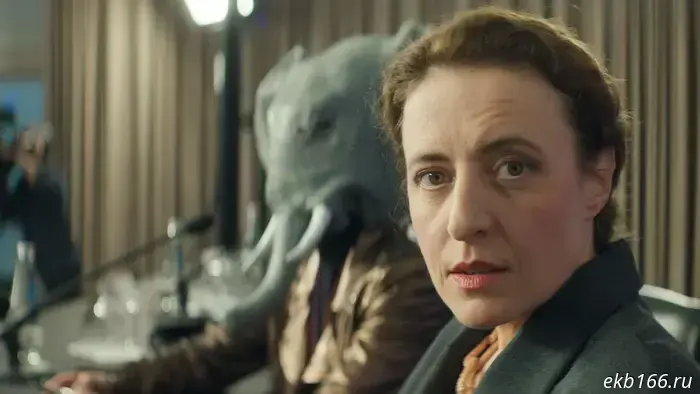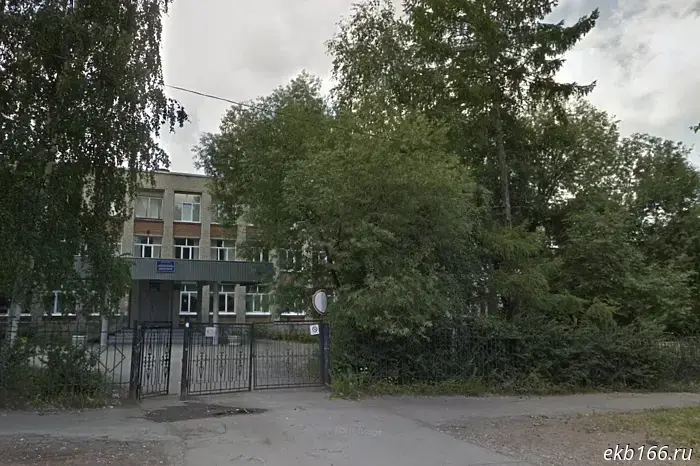
German filmmaker Ulrich Köhler’s *Gavagai* plays with its title, centering on the theme of misunderstanding. The term "Gavagai," a coined phrase introduced by philosopher Willard Van Orman Quine, examines the challenge of translating a word—or, in this film's case, a situation—that can be perceived in various ways by different characters. Here, the focus is on an interaction between a hotel security guard and the film’s lead actor, Nourou (Jean-Christophe Folly), a Black man who is being honored at the Berlin Film Festival. The director navigates a meta-narrative, portraying the on-set romance and conflicts between co-stars during the shooting and subsequent premiere of a contemporary adaptation of *Medea*. Köhler, similar to the title of his film, refrains from clarifying the story's meaning. He draws from the racial tensions prevalent in today's society, reflecting our collective moral ambiguities. Nourou interacts with his white co-star, Maja (Maren Eggert), as they engage in a complex dynamic throughout the film. Maja becomes protective of her former partner in the aftermath of a security incident, initiating a series of escalating tensions between them. She possesses enough anger for both parties. Unable to move past the incident, Maja resolves to see the guard removed, much to Nourou’s annoyance. While Nourou seeks to progress in their relationship, Maja remains fixated on this mission. Köhler’s film is rife with moral ambiguities, yet the director appears more focused on depiction than resolution. He does not aim to guide his audience toward a "correct" course of action. Instead, he presents a scenario and invites viewers to react. Would we feel indignant? Would we permit Nourou to manage the situation as he sees fit? And what role do love or desire play in a circumstance steeped in moral uncertainty? Folly delivers an exceptional performance in his pivotal role. His expressions remain composed, navigating the story with emotional fluidity. While he conveys disappointment with a subdued smile and joy with a bright grin, there is a steady stoicism in his presence. He has faced similar challenges before with both the security guard and Maja. His affection for her surpasses any other emotion. *Gavagai* shifts its focus to the film within the film—a reinterpreted *Medea* set in Senegal, ending in a distinctly French manner rather than Euripides' original conclusion. This film is crafted by a white woman (mirroring many contemporary European directors) who demands intense emotion from her stars, offers little to her Black extras, and approaches reporters with an intriguing sense of entitlement to narrate whichever stories she chooses. Köhler weaves a tapestry of commentary throughout his feature, utilizing four languages and meta storytelling. His reluctance to provide clarity for these characters serves both as a strength and a limitation. It engages the viewer while simultaneously withholding resolution; it raises questions merely to leave them unanswered. Sometimes, a film leads towards the unresolvable. In *Gavagai*, the theme of misinterpretation amid societal tension forms the crux of the narrative, and Köhler declines to delve into anything beyond the racial and moral dilemmas perpetually bubbling beneath the surface. *Gavagai* made its debut at the 2025 New York Film Festival.
Новые трамваи в Екатеринбурге не будут курсировать в Академический район из-за подростков. 8 октября 2025 года сообщается, что новые трёхсекционные трамваи «Кастор» не выйдут на маршрут №1, который соединяет Академический и Вторчермет. Эти сведения распространил Telegram-канал «Екатеринбург Главное».
Трамваи не выйдут на линию, пока не будет решена проблема с хулиганством, так как есть опасения, что новые трамваи могут быть повреждены. Ранее также поступила информация о том, что в случае дальнейшего проявления агрессии со стороны подростков, трамваи прекратят движение в тех районах, где происходят противоправные действия относительно бригад.






Другие Новости Екатеринбурга (ЕКБ166)
 Жители Свердловской области массово обращаются с жалобами на отсутствие мобильного интернета.
Жители Екатеринбурга и окрестных пригородов активно сообщают о проблемах с мобильным интернетом у клиентов оператора «Мотив». Первые жалобы на сбои начали поступать примерно в 11:00 8 октября.
Жители Свердловской области массово обращаются с жалобами на отсутствие мобильного интернета.
Жители Екатеринбурга и окрестных пригородов активно сообщают о проблемах с мобильным интернетом у клиентов оператора «Мотив». Первые жалобы на сбои начали поступать примерно в 11:00 8 октября.
 В Екатеринбурге злоумышленники заливают автомобили кислотой.
Жители дома на улице Парниковой, 8 столкнулись с неприятной ситуацией — во дворе несколько автомобилей были повреждены кислотой. Владельцы автомобилей с ужасом обнаружили следы химического воздействия на дверях и кузове своих машин.
Власти Свердловской области прокомментировали эвакуацию предприятий в этом регионе.
Некоторые предприятия Свердловской области начали применять превентивные меры в ответ на угрозу атаки беспилотников, что включает в себя эвакуацию сотрудников. В каждом учреждении разработан индивидуальный план действий для таких случаев.
В Екатеринбурге злоумышленники заливают автомобили кислотой.
Жители дома на улице Парниковой, 8 столкнулись с неприятной ситуацией — во дворе несколько автомобилей были повреждены кислотой. Владельцы автомобилей с ужасом обнаружили следы химического воздействия на дверях и кузове своих машин.
Власти Свердловской области прокомментировали эвакуацию предприятий в этом регионе.
Некоторые предприятия Свердловской области начали применять превентивные меры в ответ на угрозу атаки беспилотников, что включает в себя эвакуацию сотрудников. В каждом учреждении разработан индивидуальный план действий для таких случаев.
 В школе Екатеринбурга внедрили необычное расписание.
В школе № 125, расположенной на улице Чекистов в Екатеринбурге, было введено нестандартное расписание: теперь некоторые классы учатся не утром и не после обеда, а с середины дня.
В школе Екатеринбурга внедрили необычное расписание.
В школе № 125, расположенной на улице Чекистов в Екатеринбурге, было введено нестандартное расписание: теперь некоторые классы учатся не утром и не после обеда, а с середины дня.
 В Екатеринбурге в центре города произошел инцидент с участием Lamborghini.
В центре Екатеринбурга случилась авария с участием дорогих автомобилей. На улице 8 Марта произошло столкновение Lamborghini Huracan Tecnica и кроссовера Mercedes. В результате ДТП движение на этом участке временно ограничили, к счастью, никто не пострадал.
В Екатеринбурге в центре города произошел инцидент с участием Lamborghini.
В центре Екатеринбурга случилась авария с участием дорогих автомобилей. На улице 8 Марта произошло столкновение Lamborghini Huracan Tecnica и кроссовера Mercedes. В результате ДТП движение на этом участке временно ограничили, к счастью, никто не пострадал.
 Разозленные жители Свердловской области не могут вылететь на отдых в Турцию из аэропорта Кольцово.
В аэропорту Кольцово вылет рейса в Анталью уже задерживается более 12 часов. В зале ожидания скопилось множество раздражённых пассажиров. По информации с онлайн-табло, самолёт рейса ZF-1041 должен был отправиться на турецкий курорт в 3:35, но вылет перенесли на 16:00 8 октября.
Разозленные жители Свердловской области не могут вылететь на отдых в Турцию из аэропорта Кольцово.
В аэропорту Кольцово вылет рейса в Анталью уже задерживается более 12 часов. В зале ожидания скопилось множество раздражённых пассажиров. По информации с онлайн-табло, самолёт рейса ZF-1041 должен был отправиться на турецкий курорт в 3:35, но вылет перенесли на 16:00 8 октября.
German filmmaker Ulrich Köhler’s *Gavagai* plays with its title, centering on the theme of misunderstanding. The term "Gavagai," a coined phrase introduced by philosopher Willard Van Orman Quine, examines the challenge of translating a word—or, in this film's case, a situation—that can be perceived in various ways by different characters. Here, the focus is on an interaction between a hotel security guard and the film’s lead actor, Nourou (Jean-Christophe Folly), a Black man who is being honored at the Berlin Film Festival. The director navigates a meta-narrative, portraying the on-set romance and conflicts between co-stars during the shooting and subsequent premiere of a contemporary adaptation of *Medea*. Köhler, similar to the title of his film, refrains from clarifying the story's meaning. He draws from the racial tensions prevalent in today's society, reflecting our collective moral ambiguities. Nourou interacts with his white co-star, Maja (Maren Eggert), as they engage in a complex dynamic throughout the film. Maja becomes protective of her former partner in the aftermath of a security incident, initiating a series of escalating tensions between them. She possesses enough anger for both parties. Unable to move past the incident, Maja resolves to see the guard removed, much to Nourou’s annoyance. While Nourou seeks to progress in their relationship, Maja remains fixated on this mission. Köhler’s film is rife with moral ambiguities, yet the director appears more focused on depiction than resolution. He does not aim to guide his audience toward a "correct" course of action. Instead, he presents a scenario and invites viewers to react. Would we feel indignant? Would we permit Nourou to manage the situation as he sees fit? And what role do love or desire play in a circumstance steeped in moral uncertainty? Folly delivers an exceptional performance in his pivotal role. His expressions remain composed, navigating the story with emotional fluidity. While he conveys disappointment with a subdued smile and joy with a bright grin, there is a steady stoicism in his presence. He has faced similar challenges before with both the security guard and Maja. His affection for her surpasses any other emotion. *Gavagai* shifts its focus to the film within the film—a reinterpreted *Medea* set in Senegal, ending in a distinctly French manner rather than Euripides' original conclusion. This film is crafted by a white woman (mirroring many contemporary European directors) who demands intense emotion from her stars, offers little to her Black extras, and approaches reporters with an intriguing sense of entitlement to narrate whichever stories she chooses. Köhler weaves a tapestry of commentary throughout his feature, utilizing four languages and meta storytelling. His reluctance to provide clarity for these characters serves both as a strength and a limitation. It engages the viewer while simultaneously withholding resolution; it raises questions merely to leave them unanswered. Sometimes, a film leads towards the unresolvable. In *Gavagai*, the theme of misinterpretation amid societal tension forms the crux of the narrative, and Köhler declines to delve into anything beyond the racial and moral dilemmas perpetually bubbling beneath the surface. *Gavagai* made its debut at the 2025 New York Film Festival.
Новые трёхсекционные трамваи «Кастор» пока не будут запущены на маршрут №1, соединяющий Академический район и Вторчермет. Об этом информирует Telegram-канал «Екатеринбург Главное».
